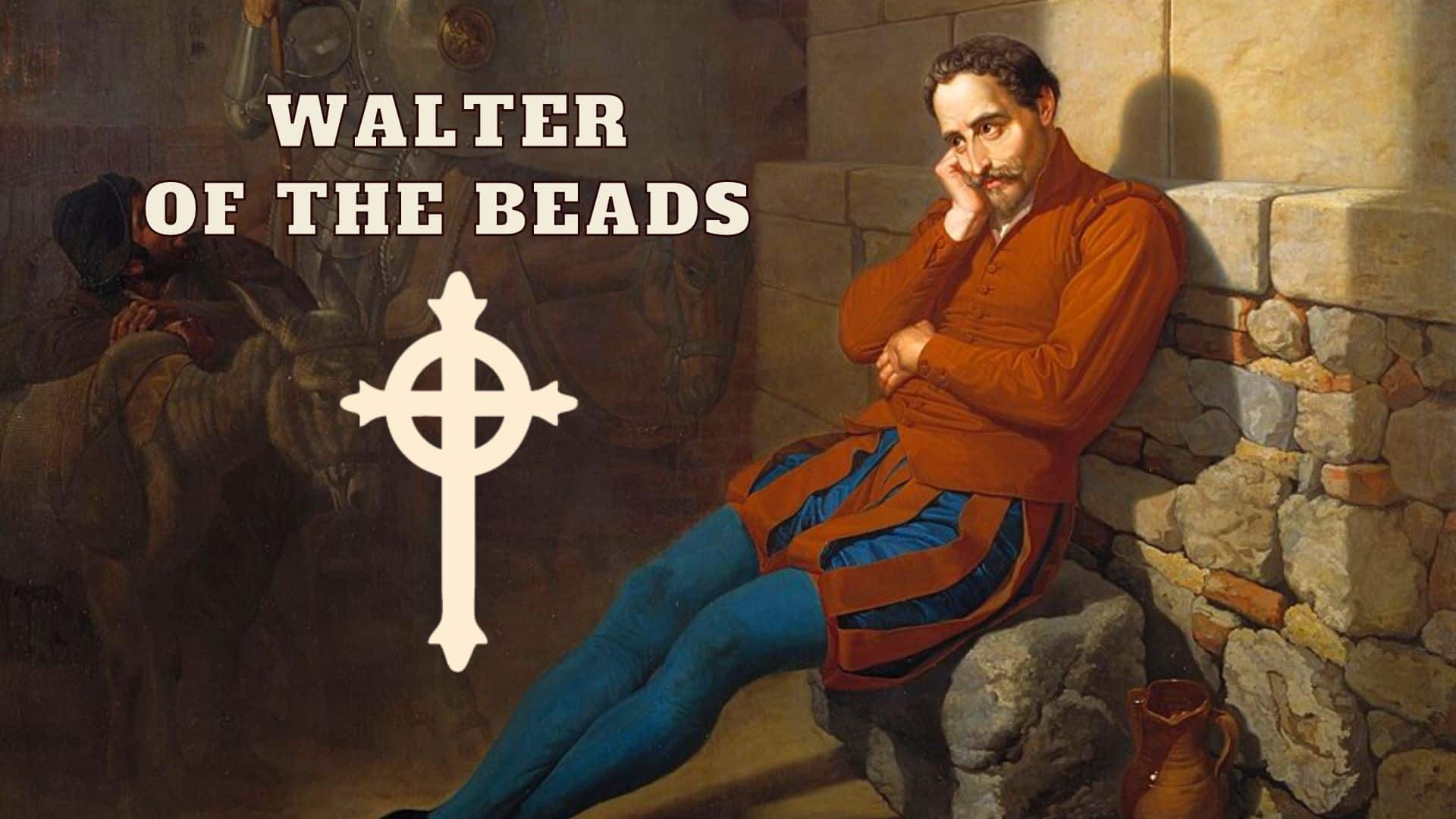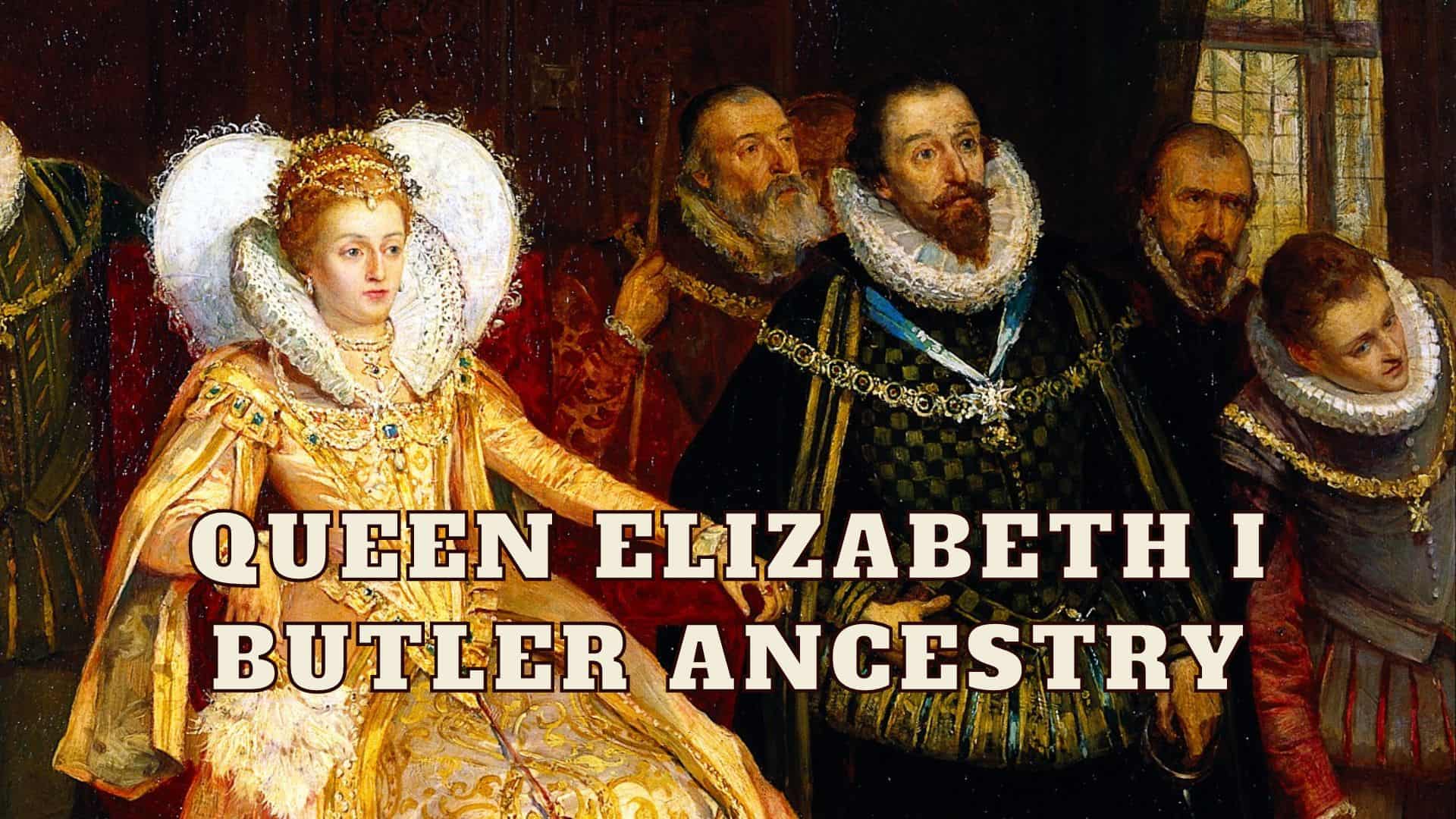“South Carolina Politics: The Butlers” offers an insightful look into an early American political dynasty that played a pivotal role in shaping both South Carolina and the nation.
- Origins of a South Carolina Political Dynasty
- William Butler
- William Butler Jr.
- Andrew Pickens Butler
- Pierce Mason Butler
- Sampson Hale Butler
- Matthew Calbraith Butler
- Thomas Bothwell Butler
- Butler Family Cemetery, Saluda County, South Carolina
- Special Mention: Pierce Butler
- Related Butler Stories
- Recommended Reading
Origins of a South Carolina Political Dynasty

The progenitor of the Butler political dynasty in South Carolina was Captain James Butler (1738-1781).
James was born in Prince William County, Virginia, and moved to Ninety-Six District with his wife, children, and two sisters a few years before the Revolutionary War. Ninety-Six District was a large judicial district and fortified settlement that included present-day Abbeville, McCormick, Edgefield, Saluda, Greenwood, Laurens, Union, and Spartanburg counties; much of Cherokee and Newberry counties; and small parts of Aiken and Greenville Counties. The lands further west were Cherokee Indian lands.
In 1779, James served under General Benjamin Lincoln and was arrested and imprisoned for refusing to swear allegiance to the British after the fall of Charleston. After his release, James and one of his sons, James Butler Jr. (1761-1781), were killed at Cloud’s Creek in an encounter with a band of Tories led by William “Bloody Bill” Cunningham.
By his marriage with Mary Elizabeth Simpson, James had eight children, including William Butler.
William Butler

William Butler (1759-1821), like his father Captain James Butler, was born in Prince William County, Virginia Colony. Growing up in South Carolina, he immersed himself in the patriot cause, serving in the Snow Campaign under Colonel Richard Richardson in 1775 and in General Andrew Williamson’s expedition against the Cherokee Indians in 1776.
In 1779, the 20-year-old William was commissioned as a lieutenant in Pulaski’s Legion under General Benjamin Lincoln. He fought under General Andrew Pickens at the Siege of Augusta in 1780. By 1781, William had risen to the rank of captain, serving under General William Henderson. In 1782, he became a captain of Mounted Rangers under Pickens.
After the war, William transitioned to politics. He was a member of the South Carolina convention that ratified the U.S. Constitution in 1788. From 1787 to 1790, he served in the South Carolina House of Representatives representing St. Mark’s Parish. He was then elected to represent Edgefield County in the state house from 1791 to 1795.
William’s national political career began when he was elected as a Democratic-Republican to the U.S. House of Representatives in 1801, representing South Carolina’s 5th congressional district. He served one term from 1801 to 1803. After redistricting, he was then re-elected to the 2nd district seat, serving in Congress from 1803 to 1813, over five consecutive terms. He chose not to run for re-election in 1812.
During the War of 1812, William returned to military service as a major general commanding the troops raised for the defense of South Carolina. After the war ended, he retired to his plantation on the Saluda River near Mount Willing.
William died at age 61 and was buried in the Butler Family Cemetery at Butler Methodist Church near Saluda. He was the father of Congressman William Butler Jr., Senator Andrew Pickens Butler, and Governor Pierce Mason Butler, and grandfather of Senator Matthew Calbraith Butler.
William Butler Jr.

William Butler Jr. (1790-1850) was born near Saluda, South Carolina. His father was William Butler, and his brothers were Andrew Pickens Butler and Pierce Mason Butler.
After graduating from South Carolina College (now the University of South Carolina) in 1810, William Jr. studied medicine and obtained his license to practice. When the War of 1812 broke out, he joined the United States Navy as a surgeon and served at the pivotal Battle of New Orleans.
In 1819, while stationed in Rhode Island, William Jr. married Jane Tweedy Perry, a member of a famous Perry family. Her brothers were naval officers Oliver Hazard Perry and Matthew Calbraith Perry.
After leaving the Navy, the Butlers settled in Greenville, South Carolina, in 1825. William Jr. established a rural medical practice as a country doctor. His political career began when he was elected as a Whig to the 27th United States Congress, serving from 1841 to 1843.
Following his term in Congress, William Jr. became the agent for the Cherokee Indians in 1849, supervising their affairs and interests. This position took him to Indian Territory in what is now Oklahoma. Tragically, William Jr. died at Fort Gibson in Indian Territory in 1850 at age 60. He was buried near Van Buren, Arkansas. William Jr. was the father of at least 10 sons and 6 daughters, including Senator Matthew Calbraith Butler. He was the grandfather of Thomas Bothwell Butler.
Andrew Pickens Butler

Andrew Pickens Butler (1796-1857) was born in Edgefield, South Carolina. His father was William Butler, and his brothers were William Butler Jr. and Pierce Mason Butler.
His political career began at a young age when he was elected to the South Carolina House of Representatives. In 1824, he won election to the South Carolina Senate, where he served two full terms and part of a third before being appointed as a judge to the state’s session court in 1833. Two years later, in 1835, he was elevated to become a judge on the South Carolina Court of Common Pleas.
In 1846, Andrew’s national political career took off when he was appointed by the state legislature to the United States Senate as a States’ Rights Democrat to fill a vacancy. He won election later that year to complete the term through 1849. Andrew was then re-elected by the legislature to a full six-year term in 1848 and again in 1854, allowing him to serve in the Senate until his death in 1857 at age 60. His most notable achievement was co-authoring the Kansas-Nebraska Act of 1854 along with Senator Stephen A. Douglas of Illinois.
Pierce Mason Butler

Pierce Mason Butler (1798-1847) was born in Edgefield County, South Carolina. His father was William Butler, and his brothers were William Butler Jr., and Andrew Pickens Butler.
After graduating from South Carolina College, Pierce obtained an army commission in 1818 as a second lieutenant through the influence of his Congressman and then Secretary of War John C. Calhoun. Over the next decade, Pierce rose to the rank of captain while serving in the U.S. 7th Infantry Regiment.
After resigning his army commission, Pierce’s political rise began when he was elected as a staunch nullifier to South Carolina’s 1832 Nullification Convention that challenged federal authority.
Despite not actively seeking the office, Pierce’s prominent status led to him being elected as the 56th Governor of South Carolina in December 1836. As governor from 1836 to 1838, he called for putting divisive nullification issues aside and revitalizing the state militia. His term was marked by economic crisis during the Panic of 1837 as well as responding to a devastating fire in Charleston in 1838.
When the Mexican-American War erupted in 1846, the 48-year-old Pierce resumed his military career, being appointed colonel of the Palmetto Regiment of South Carolina Volunteers. It was leading this regiment at the Battle of Churubusco outside Mexico City on August 20, 1847, that Pierce was struck by a musket ball and killed instantly at age 49. Initially buried in Columbia, Pierce’s remains were eventually reinterred at the Butler Family Cemetery in Saluda County in 1853.
Sampson Hale Butler
Sampson Hale Butler (1803-1848) was born in Ninety Six, Edgefield District, South Carolina. He was a son of Thomas Butler (1763-1842) and a grandson of Captain James Butler.
After attending South Carolina College, Sampson was admitted to the bar in 1825. He practiced law in Edgefield and Barnwell counties before entering politics. He served as Sheriff of Barnwell County from 1832 to 1839 and spent three terms in the South Carolina House of Representatives from 1832 to 1835. Sampson’s most notable role was as a Democratic U.S. Representative for South Carolina’s 26th and 27th Congressional districts from 1839 to 1842, before resigning partway through his second term.
Sampson later relocated to Florida, where he returned to practicing law until his death in Tallahassee in 1848. Although his time in Congress was relatively brief, Sampson still made contributions through his legal career and political service to his home state.

Sampson Hale Butler (1803-1848) not only shared his name with his uncle, the distinguished Colonel Sampson Hale Butler (1769–1822), but he also carried on the family legacy in the halls of the U.S. Congress! It seems that greatness ran in the family—and so did a great name! 🇺🇸🤝
Matthew Calbraith Butler

Matthew Calbraith Butler (1836-1909) was born near Greenville, South Carolina. His father was William Butler Jr., and his paternal uncles were Andrew Pickens Butler and Pierce Mason Butler. Thomas Bothwell Butler was his nephew. He was named after his maternal uncle, Matthew Calbraith Perry.
After graduating South Carolina College in 1856, Matthew was admitted to the bar in 1857, and began practicing as a lawyer in Edgefield. In 1860, the 24-year-old Matthew was elected to the South Carolina House of Representatives, but resigned the following year when the Civil War began.
After the war, Matthew resumed his law career in Edgefield. He returned to politics as a member of the Democratic Party, serving again in the South Carolina House starting in 1866. Though he ran unsuccessfully for lieutenant governor in 1870, Matthew’s political prospects improved after Democrats regained control of the state in 1876.
In 1877, the 41-year-old Matthew was elected to the U.S. Senate by the South Carolina legislature, where he would serve three terms until 1895. As a Senator, he sat on key committees like Foreign Relations, Military Affairs, and Interstate Commerce.
In his later years, Matthew held leadership roles in historical societies and worked for a mining company in Mexico. Matthew eventually returned to Washington D.C. but died there in 1909 at age 73.
Thomas Bothwell Butler

Thomas Bothwell Butler (1866-1931) was born in Union, South Carolina. He was a son of Dr. Pierce Pickens Butler (1834-1910) and a grandson of William Butler Jr. His uncle was Matthew Calbraith Butler.
After earning a law degree from South Carolina College, Thomas opened his own practice. He held several local offices, serving as mayor of Gaffney and spending one term in the South Carolina House of Representatives. However, most of his political career was in the State Senate, where he represented Cherokee County over six terms between 1903-1907 and 1919-1926.
In 1926, Thomas was elected Lieutenant Governor under Governor John Richards Jr. He died in office in 1931 at age 64, but he left a lasting impact in South Carolina politics through his decades of public service at both the local and state levels.

Through his mother, Thomas Bothwell Butler was a nephew of Thomas Bothwell Jeter, South Carolina’s 79th Governor! #FamilyTies #SouthCarolinaHistory 🌟
Butler Family Cemetery, Saluda County, South Carolina

The Butler Family Cemetery is located behind the Butler Methodist Church in Saluda County, South Carolina. The church was built on land originally belonging to the Butler family homestead, which they donated when they moved away in the 1850s. The cemetery predates the church, with the earliest grave marker dating back to 1802.
This cemetery serves as the final resting place for many prominent members of the Butler family in South Carolina. Those buried here include William Butler, Pierce Mason Butler, and Andrew Pickens Butler.
In total, the Butler Family Cemetery contains the graves of ten soldiers who fought across six different American wars, highlighting the family’s long military tradition and service.
In recognition of the impact the Butler family made on both South Carolina and American history, the Butler Family Cemetery was added to the National Register of Historic Places on December 31, 1974.
Special Mention: Pierce Butler

Although unrelated to the prominent Butler political dynasty in South Carolina, Pierce Butler (1744-1822) played a pivotal role in American history. He was one of only 39 delegates who signed the U.S. Constitution at the 1787 Constitutional Convention in Philadelphia, representing his adopted home state of South Carolina. This momentous occasion marked the formation of the nation’s founding document and principles of government.
Born into a Cloughgrenan branch of the Butler family in Ireland, Pierce began his career as an officer in the British Army, even participating in the Boston Massacre of 1770. However, by 1779 he had switched loyalties and was organizing American militia forces to fight the British during the Revolutionary War.
After the war, Pierce became a leading advocate for the rights of frontiersmen and settlers. At the Constitutional Convention, he forcefully supported a strong central government while also defending his region’s interests. Pierce went on to serve three terms as a U.S. Senator from South Carolina.

Butlers in Congress 🏛️: Since the First Continental Congress in 1774, 26 people with the Butler surname have served in the United States Congress. Collectively, they have represented 18 states 🇺🇸 and served 113 terms 🗓️.
Related Butler Stories
- Butler Surname in the United States Congress 1774-2022
- Pierce Butler: A Founding Father of the United States
- The Fighting Butlers
- Pierce Mason Butler: Governor of South Carolina
Recommended Reading
- Jervey, Theodore D. “The Butlers of South Carolina”. The South Carolina Historical and Genealogical Magazine, vol. 4, no. 4, Oct. 1903, pp. 296-311.
- “The Historical Marker Database. ‘Butler Family Graves.’ HMdb.org.”
- Chapman, John A., A.M. “History of Edgefield County from the Earliest Settlements to 1897.” Elbert H. Aull, Publisher and Printer, 1897. Genealogy Trails. Contributed by Dena W.













